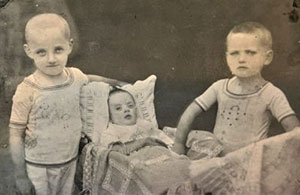Banning the Holocaust

Claire was a young woman in love, with her whole life in front of her, a life with her handsome fiancé, her future husband, and presumably their future children.
But then it happened. The unthinkable happened.
Her fiancé Carl (Karoly in Hungarian) went missing. It was 1943 in Budapest. Hilter and the Nazis and Nazism were killing the Jews.
After Hungary was eventually liberated, in the spring of 1945, Claire would hear stories of Jews who vanished, gone for years, but evaded death during the Holocaust, only to return home, and live a new life.
Hope is a powerful emotion, and Claire (or Klari in Hungarian) would spend the rest of her youth — the remainder of her hope — walking to the nearby local train station, begging God that Carl would reemerge. She’d stand on that Budapest Western Terminal platform waiting and waiting.
“This is Carl, did you by any chance see him?” we were told Claire would ask other survivors getting off the train. She was accompanied by…
To continue reading this article, and more like it, subscribe to our separate digital newsmagazine, Examiner+, and enjoy all of our premium content at examiner.memberful.com/join/
(This post is an excerpted version of an article from our Examiner+ digital newsmagazine on Substack).

Adam has worked in the local news industry for the past two decades in Westchester County and the broader Hudson Valley. Read more from Adam’s author bio here.
